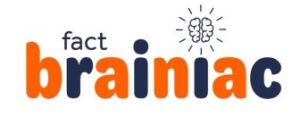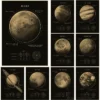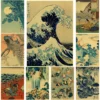When you squeeze minty fresh toothpaste onto your brush each morning, you’re participating in a ritual with ancient roots. The history of toothpaste is long before the first tube of Crest rolled off assembly lines. Ancient Egyptians were concocting their own tooth-cleaning pastes. They valued oral hygiene and invented some of the first breath mints, toothpicks and toothpaste recipes.
So, what did ancient people use for toothpaste? Around 1550 BCE, the famous Ebers Papyrus described an early Egyptian toothpaste made from ingredients like ox hooves, burnt eggshells and pumice. It may not sound appetizing, but it worked. The ox hooves and eggshells provided abrasive calcium carbonate to scrub plaque from teeth. And the pumice acted as a gentle abrasive to polish away stains.
By the 4th century BCE under Roman rule, Egyptian toothpaste had evolved to incorporate mint, salt, pepper and dried iris flowers. The mint likely helped freshen breath, while the salt and pepper served as abrasives. Egyptians applied these pastes with makeshift toothbrushes made from frayed twigs.
Though weird-sounding today, these ancient tooth cleaners weren’t so different from modern pastes. Ingredients like hydrated silica in Crest or Colgate also serve as abrasives to scrub away gunk and combat cavities. And many modern pastes contain mint to leave your mouth feeling fresh.
The Ancient Quest for Pearly Whites
Why were Egyptians so obsessed with their teeth? Archaeologists have found ivory toothpicks buried alongside Egyptian mummies, suggesting dental hygiene was an important part of their culture.
Egyptians associated teeth with purification and cosmetics. Tombs were even equipped with a Pharaoh’s favorite tooth stick for the afterlife. Whitening teeth was also trendy among high society. Ancient beauty texts recommended rubbing teeth with black coal or salt to remove stains.
Some evidence suggests Egyptians suffered fewer dental problems than the bread-eating Romans. Cleaning plaque likely helped minimize painful cavities.
Of course, wealthy Egyptians had better access to oral care. But even commoners made their own toothpaste using readily available abrasives like rock salt.
Though we now know germs cause cavities and diseased gums, Egyptians intuitively practiced dental hygiene. Their homebrewed pastes helped keep teeth clean between meals. So while ancient Egyptians didn’t floss or brush twice a day, they valued tooth care in their own way.
Next time you squeeze out your favorite brand of toothpaste, consider its what ancient people used for toothpaste. Though we’ve perfected the formula today, the basic ingredients and purpose remain surprisingly unchanged. It just goes to show our ancestors were smarter — and more hygienic — than we give them credit for.


 Additional Fun Facts
Additional Fun Facts

